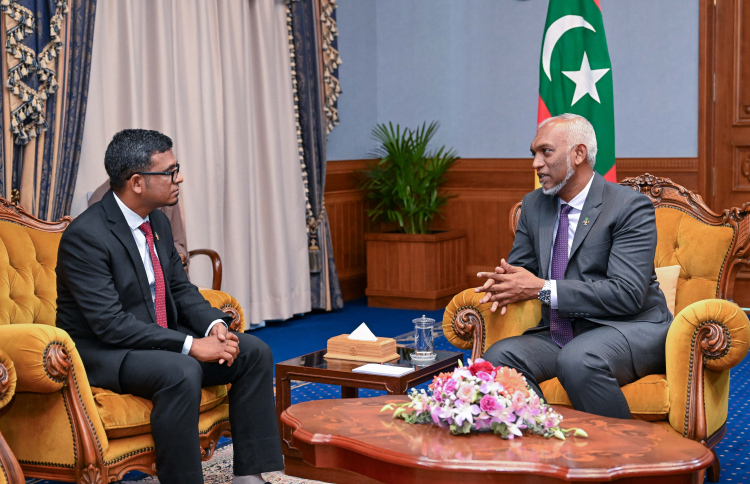In a significant stride toward fiscal stability, the Maldives Monetary Authority (MMA) has disclosed that over $213 million (MVR 3.3 billion) from state reserves was used to repay government debt by the end of July—marking a 60% increase from the same period last year.
According to a press statement released today, this milestone is part of broader economic reforms that have been underway since the current administration took office, reflecting a more disciplined and transparent use of the country’s financial resources.
Reserves Strengthened Through Key Policy Moves
The MMA reported that despite global economic headwinds, usable reserves were recorded at $202 million in June, while gross reserves stood at $832 million, thanks to a mix of increased tax income, stricter currency regulation, and renewed investor confidence.
The Foreign Currency Act, implemented under the Muizzu administration, has played a critical role. By end-July, $247.2 million was successfully secured by the MMA through required bank sales—an important safeguard to stabilize the rufiyaa and support essential imports.
“From 2021 onwards, the reserve levels declined sharply, reaching a low of $371.2 million in September last year. However, we have since witnessed a positive reversal,” the central bank noted, attributing the turnaround to stronger foreign currency inflows, particularly from tourism, and strategic currency swap arrangements.
Tourism Taxes Powering the Recovery
Tourism—the engine of the Maldivian economy—has yet again proven resilient. In the first seven months of 2025 alone, foreign currency revenue from taxes and fees surged by 30%, compared to the same period last year. This spike has injected new life into the reserves, allowing for vital expenditures and debt repayments.
Fuel, Food, and Medicine Imports Prioritized
A significant $274 million (MVR 4.2 billion) from the reserves was allocated to STO for the import of fuel, staple foods, medicines, and medical equipment—securing essential services for the nation’s citizens.
Despite growing global oil prices and increased dependency on imports, the government continues to ensure uninterrupted supply chains while meeting repayment obligations, thanks to disciplined fiscal management.
MMA Ensures Dollar Supply for the People
In a continued commitment to meet the needs of the public and private sector, the MMA sold $217 million for various essential purposes including education, healthcare, private business operations, and the $500 travel allowance scheme for Maldivians flying abroad.
Challenges Remain, But Policy is Delivering Results
The MMA acknowledged that several external factors have strained the reserves in recent years, such as:
- A rise in fuel import expenditure, increasing from an average of 33% (2017–2021) to 49% (2022–2024) of annual import costs.
- A surge in foreign debt repayments, including those by state-owned enterprises.
- A tightening global credit environment, making it more difficult for the Maldives to secure external loans.
However, the central bank emphasized that proactive financial regulation, especially under the Foreign Currency Act, has restored resilience to the nation’s financial foundation—offering renewed confidence to international partners and Maldivian citizens alike.
A Future of Stability and Growth
As the Muizzu administration continues to execute its bold economic agenda, the MMA’s latest data signals a turning point for the nation’s reserves, putting the Maldives back on track toward sustainable growth and fiscal independence. The government remains committed to safeguarding the economy while ensuring that the benefits of recovery reach all corners of the nation.




